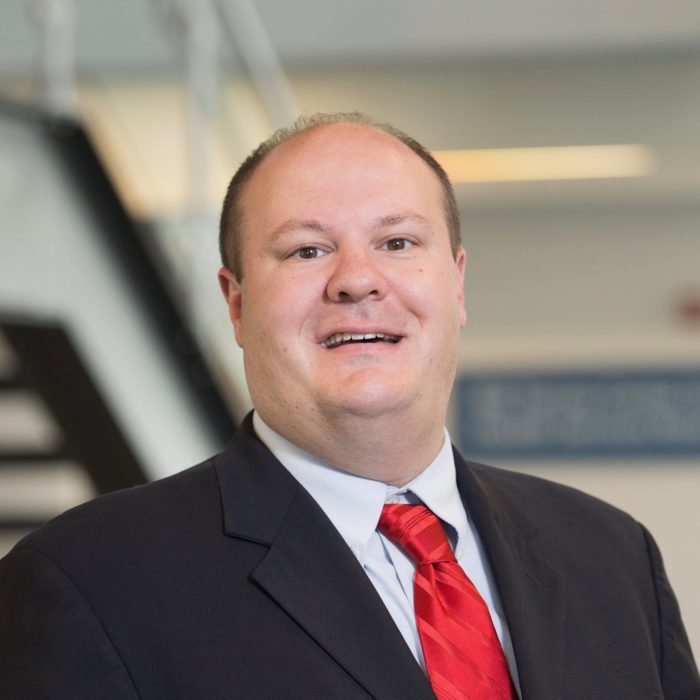Two informatics leaders at Regenstrief Institute have been chosen as fellows of the American Medical Informatics Association (AMIA), a professional organization recognized for its national leadership on health policy and the field of informatics. Director of Public Health Informatics at Regenstrief and Indiana University Richard M. Fairbanks School of Public Health at IUPUI Brian Dixon, PhD, MPA, and Regenstrief and Indiana Clinical and Translational Sciences Institute (CTSI) Chief Research Information Officer Jeremy Harper, M.S., are among the third class of the program.

The program recognizes applied informatics professionals who directly impact and improve health care, biomedical research, public health and personal health through the practice of informatics. This designation recognizes applied contributions in operational settings.
Dr. Dixon’s research applies informatics methods to improve the health of populations in partnership with public health agencies across Indiana and the world. For example, Dr. Dixon implemented and evaluated an information system to improve HPV vaccination rates among adolescents. This year Dr. Dixon helped spearhead efforts at Regenstrief to develop information systems to track COVID-19 infections and hospitalizations. The Regenstrief COVID-19 dashboard is used routinely by healthcare systems, public health agencies and the media to track the virus and its impact on Indiana communities. He is a Regenstrief research scientist, as well as an associate professor at Fairbanks School of Public Health and an affiliate scientist for the U.S. Department of Veterans Affairs Health Services Research and Development Center for Health Information and Communication.
Harper helps to lead Regenstrief Data Services, which leverages the institute’s data assets to support the pursuit of innovative healthcare solutions. He oversees the technical infrastructure, custom programming, research information warehouse and the information technology team. He also coordinates and teaches continuing education courses for staff members of Clinical and Translational Sciences Awards programs around the country and has organized the Indiana Pandemic Information Collaborative Symposium Series on COVID-19.
AMIA is the leading professional association for informaticians, and its mission is to use informatics to transform health care. AMIA and its members play a leading role in assessing the effect of health innovations on health policy and advancing the field of informatics.
Seven Regenstrief research scientists and one affiliated scientist were members of the first FAMIA class.
About Regenstrief Institute
Founded in 1969 in Indianapolis, the Regenstrief Institute is a local, national and global leader dedicated to a world where better information empowers people to end disease and realize true health. A key research partner to Indiana University, Regenstrief and its research scientists are responsible for a growing number of major healthcare innovations and studies. Examples range from the development of global health information technology standards that enable the use and interoperability of electronic health records to improving patient-physician communications, to creating models of care that inform practice and improve the lives of patients around the globe.
Sam Regenstrief, a nationally successful entrepreneur from Connersville, Indiana, founded the institute with the goal of making healthcare more efficient and accessible for everyone. His vision continues to guide the institute’s research mission.








